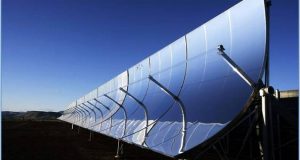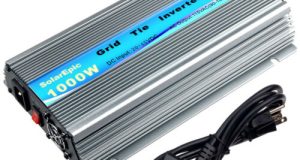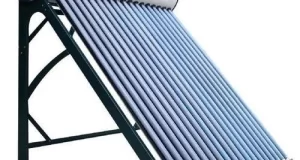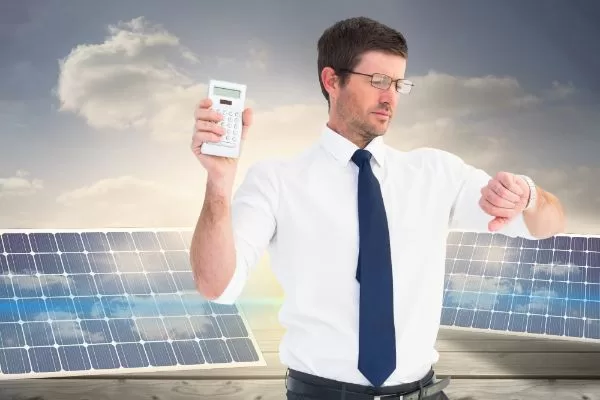The facts about solar energy are really pretty basic and easy to understand. Although there are pros and cons to solar energy the advantages of solar energy are many and the negatives few.
Solar energy efficiency is high, and it is a “clean” fuel, meaning that it puts off no harmful by-products like other fuels do. Start-up costs can be $5 or $5,000, meaning that it is within the reach of every homeowner. But to really remove solar energy facts from fiction, we only have to answer 2 simple questions. What is solar energy and how does solar power work ? Let’s answer those two questions, and hit on some other important facts about solar energy.
What is solar energy?
Solar energy is the energy derived from the sun through the form of solar radiation. Without going into a lengthy scientific discussion, that is the basic answer. Solar radiation reveals itself in two forms, heat and light. Again, very basic and very simple. And solar energy information hasn’t really changed in over 125 years. A glance backward in time into solar energy history reveals that Charles Fritts built the first solar cell in 1883. This was a scant 4 years after Thomas Edison created the first commercial electric light bulb, one that burned a whopping 40 hours. And even the ancient Egyptians understood solar power, and harnessed it through inventive building construction practices.
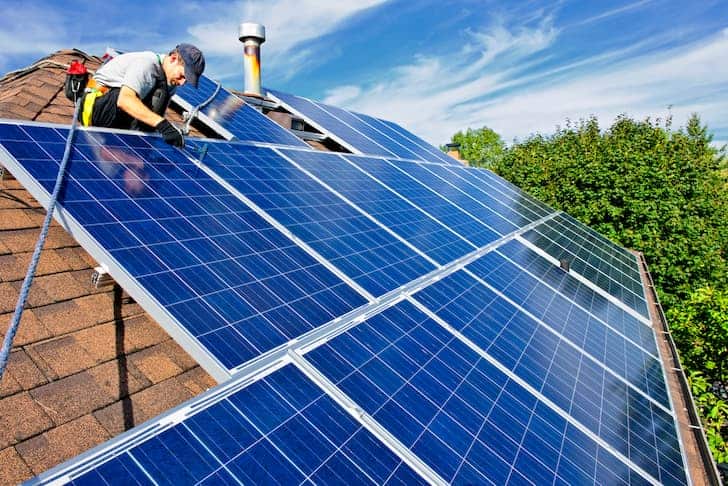
How does solar power work?
Solar power works in one of two ways, passively and actively. An example of passive solar power is the sun coming in your window. It provides heat and light that is immediately consumable without any processing. Just ask your cat. Active solar power is solar power that is stored and used later. A natural example is a rock that absorbs heat from the sun, but long after the sun has left for the day, lizards and snakes crawl atop to harness this stored heat.
Okay, so we now know the basic facts about solar energy, but I can hear you already, “That’s great, but how is solar energy produced in a residential solar energy application? What components do I need to benefit from the advantages of solar energy?” Just as the facts about solar energy itself are very straightforward, the ins and outs of solar energy production and use in the home is pretty easy to grasp.
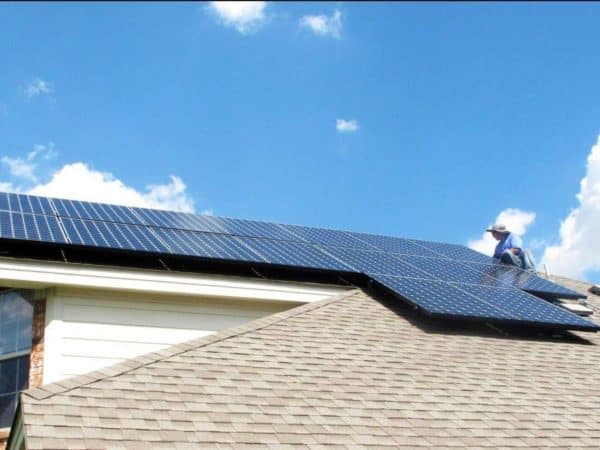
You need basically 4 things to use solar energy in your home . You need photovoltaic panels (interested in knowing about solar panel construction ) or solar thermal collectors to collect the energy, batteries to store this energy, a solar inverter to convert the DC (direct current) electricity that the sun provides into usable AC (alternating current) that our appliances and lights use, and you need a charge controller to keep the batteries from overcharging. Obviously there are wires and tubes and pipes, but that is the basic solar energy information in a nutshell.
Now before you get worried about having to assemble parts and pieces, there are solar power kits that have all the components you need for various home solar power projects. Buy the kit online, call an electrician, no muss, no fuss, and you are in business.
Obviously, you wouldn’t be researching the facts about solar energy if you weren’t considering using these solar energy facts to your benefit in your own home. So let’s take a look at the many advantages of solar power use on the residential level.First of course is the savings you reap from implementing a solar energy plan. The monthly savings are evident immediately, and the U.S. government will give you tax credits to boot. Some local governments are even tacking on their own financial incentives.
Another of the attractive facts about solar energy is the low cost of entry. As mentioned above, you can start cheaply with a few solar garden lights, and ramp up slowly. This allows your savings to pay for future upgrades. Here are even more ways to use solar energy.
Finally, there is the ecological benefit that we all share from your personal efforts. Burning fossil fuels increases our debilitating effect on Mother Earth daily, and switching to solar power can drastically reduce that impact.
Armed with these basic facts about solar energy, you can begin a home solar energy plan. Starting as inexpensively as $5 for a single solar garden light, you can begin harnessing the amazing power of the sun and lessen your impact on the environment, while saving money as well. We know you may still be unconvinced. Like all forms of energy there are many advantages and disadvantages associated with solar power. Read about the disadvantages of solar power if you’re interested in a different perspective.

